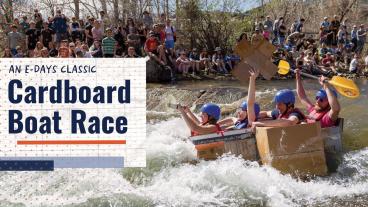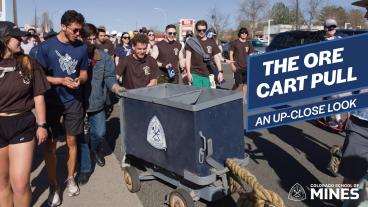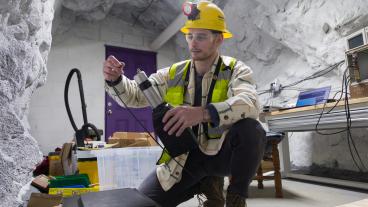DiggerLoop is ready to show the world what their Hyperloop pod can do.
The Colorado School of Mines Hyperloop team is in California for a week of testing and safety checks at SpaceX headquarters in advance of the 2018 SpaceX Hyperloop Design Competition on July 22.
A total of 20 collegiate teams from around the world are vying for the chance to run their futuristic transport pods on the final SpaceX test track on Sunday — last year, only three were allowed on the roughly mile-long track to see whose pod could travel the fastest.
DiggerLoop wasn't among them, but the Mines students are hoping 2018 will be their year.
The goal is to hit 300 miles per hour, said team leader Tyler Evans, who graduated in May with a bachelor's degree in mechanical engineering.
Since the end of the school year, Evans and his fellow teammates have been putting in a lot of long days and late nights to get the pod ready for competition.
They found out in February that Mines had qualified for the finals for the second year in a row. This year's model looks dramatically different from last year's drag racer-inspired design, though. It's more compact, sleeker and shorter — the analogy that the team has been using is they've transformed the pod from electric car to electric train.
A trip to Arizona earlier this summer to test the pod on the track at the Arizona State University Polytechnic campus didn't quite go as planned — the team wasn't able to get on the track, but they still gained some valuable machining, test fitting and build time.
The team's power subsystem lead, Connor Banks, traveled to Nevada last week to help assemble the pod's battery system at K2 Energy, the same company that provides batteries for Blue Origin rockets. He and two other team members also learned about the controls for the battery management system and appropriate charging methods from K2 engineers. Battery safety is a critical checkpoint for SpaceX, and with K2 Energy oversight, the team hopes to demonstrate the battery system's integrity.
DiggerLoop's first meeting with SpaceX was Sunday, with safety checks starting Monday. A total of 17 students and three advisors will be on hand, the students a mix of veterans from the Capstone Design cohort and newcomers who joined the team this summer.
"DiggerLoop's core members were persistent when design challenges forced changes, including after the frustration of not running in Phoenix on ASU's test track. These students worked 40- to 60-hour weeks to redesign, machine and assemble the pod for the California test," said Teaching Professor Kristy Csavina, the team's faculty advisor and assistant head of the Mechanical Engineering Department. "Tyler Evans has been an exceptional project manager, leading the team through a challenging year and an intense schedule. They are more prepared than last year's team, due in part to Karl Grueschow '17, last year's DiggerLoop systems lead, who is serving as an active technical advisor this year."
For more photos of the Mines team: DiggerLoop 2018 Arizona Trip and DiggerLoop 2018. You can also learn more about the team in the video below.
CONTACT
Emilie Rusch, Public Information Specialist, Communications and Marketing | 303-273-3361 | erusch@mines.edu
Mark Ramirez, Managing Editor, Communications and Marketing | 303-273-3088 | ramirez@mines.edu



